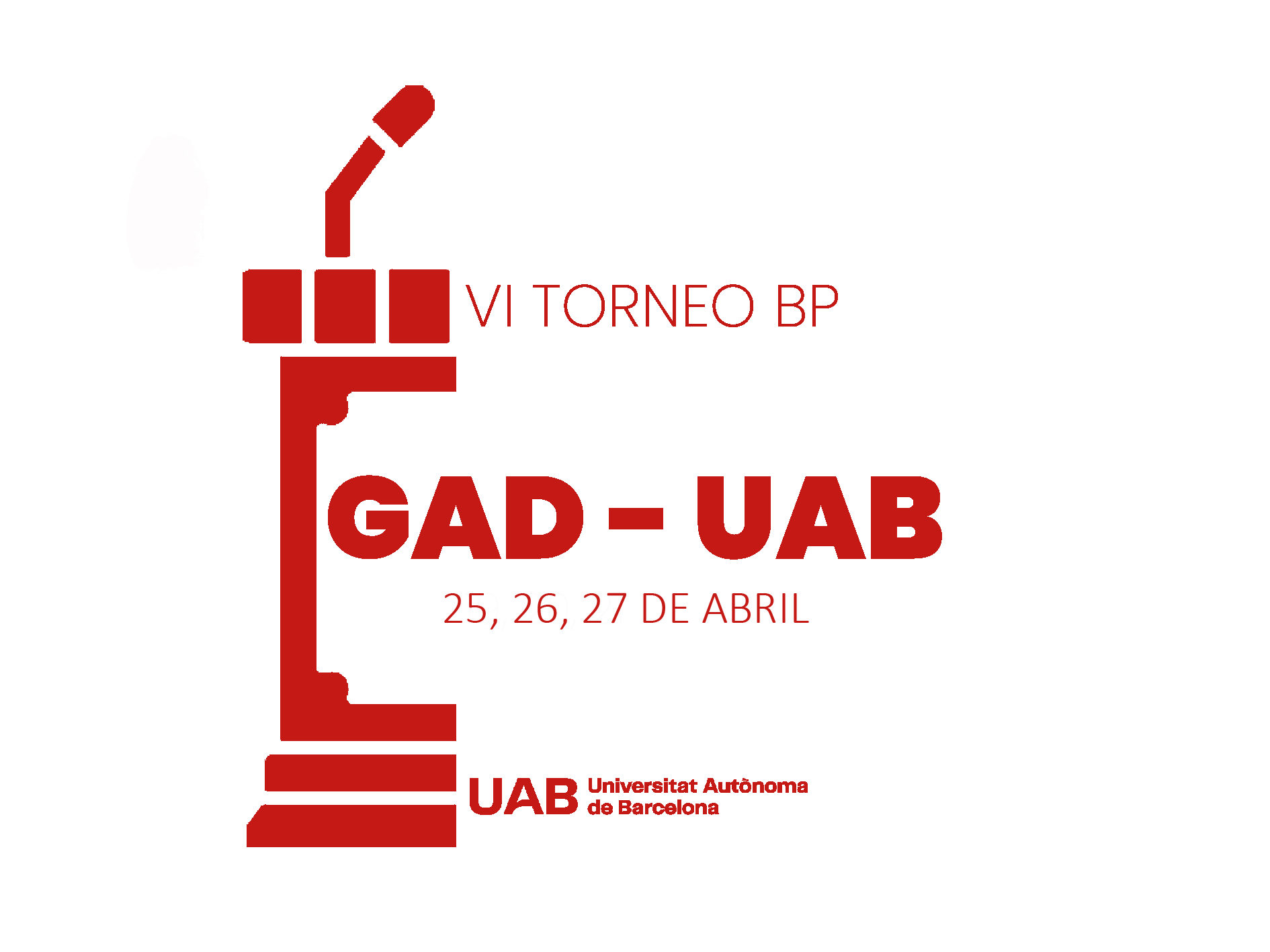V Edition BP UAB
VII Edition BP UAB

In the British Parliamentary debate format, each debate is made up of four teams, two in favor and two against, while each of these is made up of two people. The first team in favor is called the Upper House of Government (CAG); the first team against, the Upper Chamber of the Opposition (CAO); the second team in favor, Lower House of Government (CBG); and the second team against, the Lower House of the Opposition (CBO). At the same time, within each team, each speaking person receives a specific denomination, making the orders of intervention the following:
- Prime Minister (first speaker of CAG).
- Leader of the Opposition (first CAO speaker).
- Vice-Prime Minister (second speaker of CAG).
- Vice-Leader of the Opposition (second CAO speaker).
- Extensionist – or Member – of Government (first speaker of CBG)
- Extensionist - or Member - of the Opposition (first speaker of CBO).
- Government whip (second person speaker of CBG).
- Whip of the Opposition (second speaker of CBO).
Each speaker has seven minutes to make his speech. This time is not mandatory, that is, the speaker does not have to fill the entire time, and is not penalized for speaking for three minutes, and a seven-minute speech will not necessarily be valued more for being seven minutes .
The topic is called "motion", and it is different in each round. In other words, the speakers do not know the topic of which they will debate in each round. So, first they will know the position they will defend, and then the topic will be communicated to them, giving the teams fifteen minutes to prepare their arguments and positions, without being able to search for information on the internet or communicate with the other teams.
After the debate round, the judges will have a deliberation time (between fifteen and twenty minutes) to decide the results. Afterwards, the panel of judges will return to the speakers, where they will explain the positions of the debate (first, second, third and fourth), as well as the justifications for which they have agreed on these results. The team that has achieved the first position will add three points; the second, two; the third, one; and the fourth, no. After the qualifying rounds, the top eight teams will advance to the semifinals, and from each semifinal, two teams will advance, making a total of four teams to the finals, where one will be declared the tournament champion.
From 1st to 20th April 2025. Each person must register individually. In the case of the debate, you must indicate who your partner is.
In the event that your entity needs an invoice, you must indicate it in the registration process. No invoices that are not indicated at this time will be processed. It will be necessary to detail the contact details of the person who manages the invoice.
In the event that your club or institution does not require an invoice, you must deposit it in the account number indicated in the form.
Registrations do not include accommodation. The closest hotel to the competition is this one.
The organization will grant a grant for the stay to three teams and two juries. The grant consists of assuming the expenses of the accommodation and the registration. Anyone who wants to request it must fill in this form at the latest on April 8, 2025.
The organization and award will assess them and contact the people who have been awarded the grant.